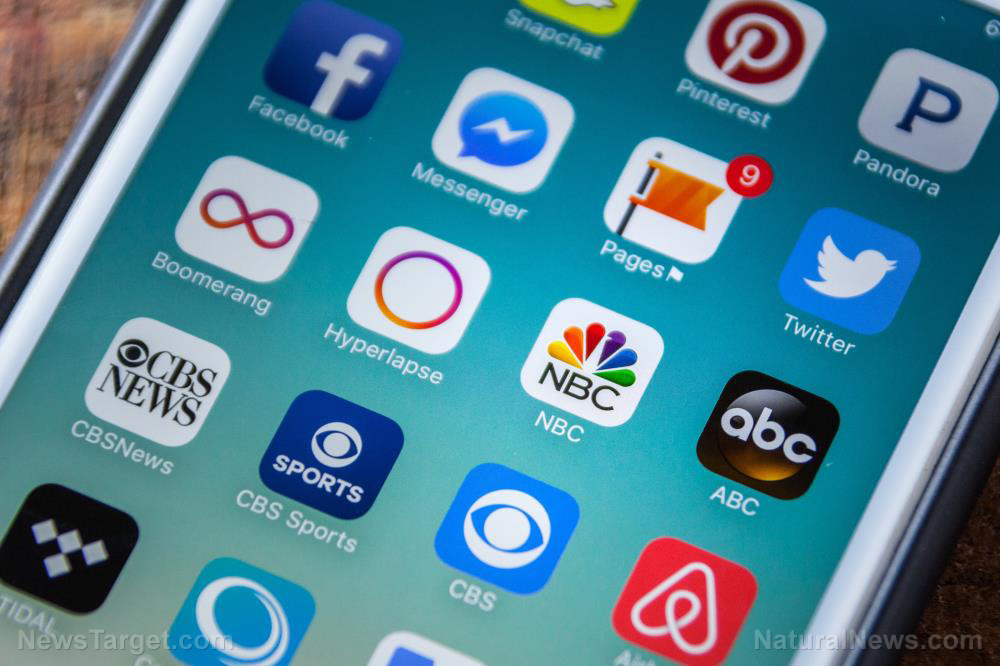Concerns raised over China’s plan to make coronavirus health tracking on smartphones permanent
07/06/2020 / By Franz Walker

In response to the Wuhan coronavirus (COVID-19) pandemic, China created a smartphone tool to trace and track the movement of potential coronavirus patients. Now, authorities are planning to make this tracking permanent, raising concerns in a country where personal privacy was once said to be an afterthought.
Over the weekend, anger spread across Chinese social media sites following an announcement that officials in the eastern city of Hangzhou could create a permanent version of a smartphone-based health-rating system initially developed to help fight the coronavirus. The announcement led some internet users to accuse the city of exploiting the pandemic to expand state monitoring of residents.
The controversy comes a few days after Robin Li, CEO of Baidu Inc. and a member of the Chinese political advisory body currently convening in Beijing as part of the country’s annual legislative conclave, proposed new rules to rein in the collection of sensitive personal information as part of efforts to fight the pandemic. (Related: Chinese authorities hid the fact that medical staff in coronavirus-hit city were infected.)
Tracking the pandemic through a smartphone app
In their efforts to stem the spread of COVID-19, Chinese authorities have aggressively pursued the deployment of digital surveillance. In addition to tracking potential patients with temperature-reading cameras and smartphone location data, officials have also used QR code-based health-rating apps to manage and track the movements of citizens depending on their risk of exposure.
A tech hub located south of Shanghai, Hangzhou was among the first cities to roll out a health-rating app. This app was developed by authorities with help from the Alibaba Group, which itself is based in Hangzhou. The app tracks a person’s health condition and travel history in order to single out those at a higher risk of carrying the coronavirus.
The city’s health commission stated on Friday that it was now considering a new, permanent version of the app that would assign each person a colored health badge based on a collation of their medical records, physical examination results and lifestyle habits, such as alcohol consumption and smoking.
In addition, residents would also be assigned a health score ranging from zero to 100. Authorities would then use this score to compile health rankings, Hangzhou Municipal Health Commission chief Sun Yongrong said.
The plan sparked a wave of criticism on Chinese social media site Weibo.
“Once power is unleashed, it’s difficult to retract. Once we give up our rights under special circumstances, it’s hard to get them back,” one user wrote Monday, in a now widely circulated post.
Several of the site’s users likened the plan to something out of “Black Mirror,” a popular dystopian science fiction television series about the unexpected results of new technology.
When asked for comment by the Wall Street Journal, Hangzhou’s health commission did not immediately respond.
China lacks an overarching personal data protection law
Baidu CEO Li submitted a formal but nonbinding proposal to legislators to wind down the data collection measures that had been put in place to try to control the coronavirus. The proposal called for clear rules to manage data already collected to minimize the risk of information leakage and abuse.
Li himself is no stranger to controversy in regards to data collection. In 2018, the CEO raised eyebrows when, at a high-level forum in Beijing, he said that the Chinese people are willing to “trade privacy for convenience, for safety, for efficiency,” though he later said that Baidu only used personal data that users had agreed to provide.
Earlier this month, a survey published by the state-linked Beijing Academy of Artificial Intelligence and the Chinese Academy of Sciences found widespread concern over the promotion of enhanced facial recognition technologies that tech companies say can identify people when wearing masks.
As Chinese companies and government agencies seek to collect ever-greater amounts of data, concerns about privacy, particularly among residents of wealthy cities, are growing in China.
In a recent report delivered at the annual meeting of China’s parliament, chief lawmaker Li Zhanshu said that the government would push forward with efforts to pass a personal data protection law as part of efforts to improve “national security and social governance.”
Efforts to craft an overarching personal data protection law in China have been underway for well over a decade. Currently, personal security safeguards in China fall under a mishmash of consumer protection, cybersecurity and other regulations. A collection of national security laws supersedes those rules, however, obligating internet companies to grant the government access to a broad swath of data.
Sources include:
Tagged Under: badtech, Beijing, China, contact tracing, coronavirus, covid-19, data protection, flu, Glitch, government, infections, medical fascism, national security, Orwellian, outbreak, pandemic, police state, privacy, privacy watch, surveillance, tracking, Tyranny, virus
RECENT NEWS & ARTICLES
COPYRIGHT © 2018 PRECRIMES.NEWS
All content posted on this site is protected under Free Speech. Precrimes.news is not responsible for content written by contributing authors. The information on this site is provided for educational and entertainment purposes only. It is not intended as a substitute for professional advice of any kind. Precrimes.news assumes no responsibility for the use or misuse of this material. All trademarks, registered trademarks and service marks mentioned on this site are the property of their respective owners.


















